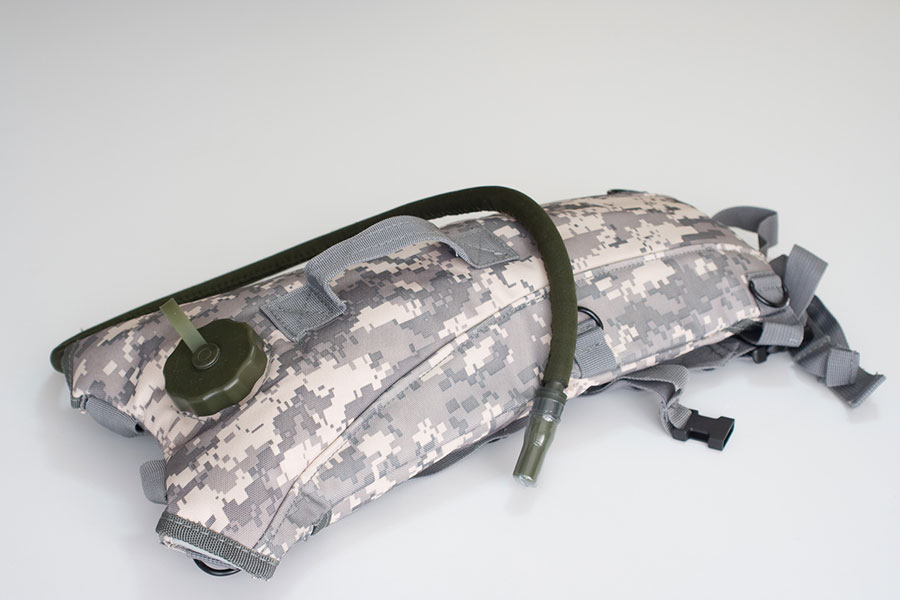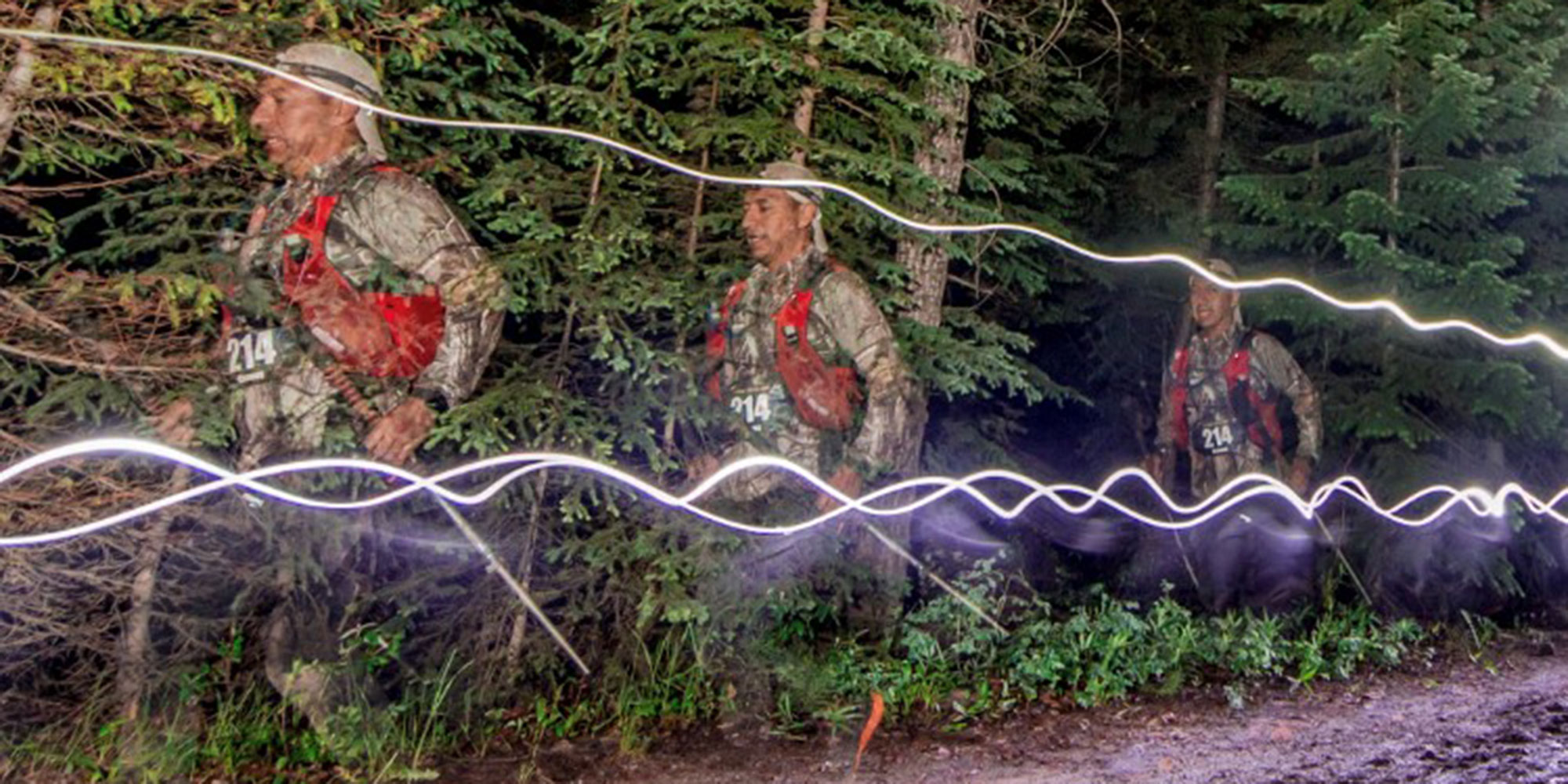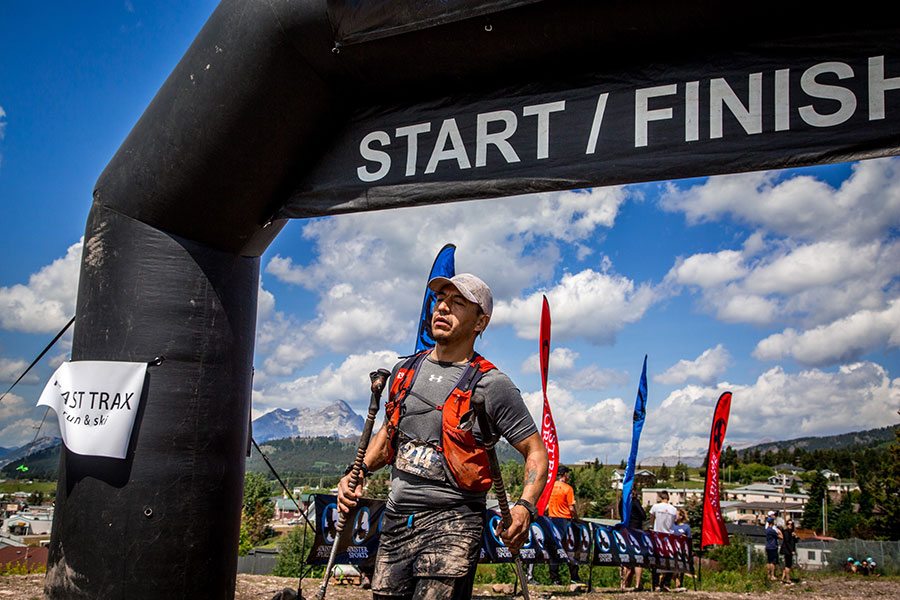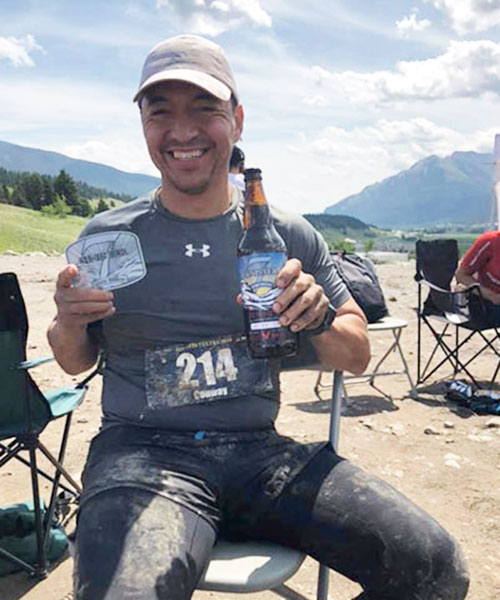“You really dig deep and know what you’re made of”
Fun is subjective. There may be no stronger proof of this than ultramarathons.
Running distances longer than a 42.2-kilometre marathon isn’t exactly the exercise craze that's sweeping the nation, but the sport has hit its stride.
In 1996, 34,401 runners signed up for ultras. Just over 20 years later, in 2018, there were 611,098 runners looking to test their bodies, minds and spirits in the extreme endurance events. They’re running anywhere from 50 to nearly 5,000 km, and often in challenging terrain such as mountains or deserts.
Why would anyone do this? Partly because ultramarathons aren’t just about running. They offer insight into the limits of human capability. How far can we go? How is it possible? What is to be gained, other than bragging rights relatively few people can relate to?
The answers, suggests athlete and running coach Conway Belcourt (Personal Fitness Trainer ’21), apply to more than his favourite sport.
Belcourt got hooked on ultras while running a section of the 125K Canadian Death Race as part of a team. Here, he tells us how to get to the finish line after 20 or more hours of running.
As it turns out, it’s similar to what gets him to any goal in life.
Make a plan

If you do not plan and prepare well, you will fail. This applies to most of life, but it can cut an ultramarathon heartbreakingly short. Belcourt prepares for a race by poring over the route, analyzing the terrain, determining pace and timing rest stops.
“If you’re doing 20 to 30 minutes at an aid station,” he warns, “your chances of finishing are not good.”
Belcourt also works out his race-day menu – the value of nutrition was an eye-opener when he studied at NAIT. “There are a lot of amazing marathoners who did not complete an ultra because they neglected to take in the proper amount of nutrition during the race.”
His own rule of thumb is to expect to burn 500 to 600 calories an hour. He replaces them on the fly with fruit, chocolate, energy gels, salt tablets and a lot of Gatorade.
Train your brain

“Before it begins, you have to make a decision that you’ll continue no matter what,” says Belcourt. “You have to convince yourself that you’re going to finish.”
Belcourt and his partner (also an ultramarathoner) start their days with positive affirmations, listening to motivational talks, and “I am” statements: “I am strong. I am fast. I am capable. I will get this done.” He’ll even write them out and post them on the bedroom wall.
“The mental aspect of running an ultramarathon is probably just as big, if not bigger, than the physical training. If you don't believe in yourself, you’re not going to accomplish it.”
Practise, and even pretend

Naturally, practise includes running (Belcourt tackles a few 60K+ runs before an event), but also key subtasks. He trains in the terrain where he’ll race, and refines his nutrition by eating and drinking along the way.
Visualization helps, too. Belcourt will cross a fake finish line to get a taste of that feeling of accomplishment to keep him going. Knowing what it looks like to achieve the goal keeps him chasing the real thing.
Break it up
Once you’re off and running, it’s easy to get overwhelmed by sheer distance. Don’t let your mind go there, says Belcourt.
It’s easy to get overwhelmed by sheer distance. Don’t let your mind go there.
Take it section by section. "Like life, you just take one day at a time, you just take one kilometre at a time.” When one is done, focus on the next – but not a moment before.
Be ready to adapt

There will be setbacks, with ups and downs real and metaphorical.
“The best plans get thrown out the window sometimes, and you just have to go with it and do the best you can,” says Belcourt. “When you hit a low, take a breath and say, ‘OK, things are not going the way I planned. What do I need to do to change?’”
You may not know how to deal with cramps or nausea at the time – but your friends might. During a pit stop at an aid station, Belcourt leans on his crew.
“Take as much advice as you can,” he says, and get back in the game. “Then you’ll be on another high. It’s amazing how quickly the body resets itself.”
Be realistic

Almost no one actually runs for the duration of an ultramarathon. You can pick up the pace when the terrain allows, but sometimes it’s so steep and rocky that power-hiking is your only choice, says Belcourt.
“Not everything is going to be perfect all the time [or] the way you want it to be." Be patient. You don’t have to be in it to win it.
“You’re a winner if you cross the finish line,” says Belcourt.
Embrace the reward
“I can’t tell you how rewarding and beautiful it is to cross the finish line,” says Belcourt.
But then, thinking of the finish line at the 160K Sinister 7 in 2019, he can.
“It’s beautiful misery. You really dig deep and you really know what you’re made of as a human being. ...
"That sense of pride and accomplishment is hard to describe,” Belcourt adds. “It’s like graduating the NAIT PFT program. It’s like having your first child. It’s like falling in love.
“It’s life.”